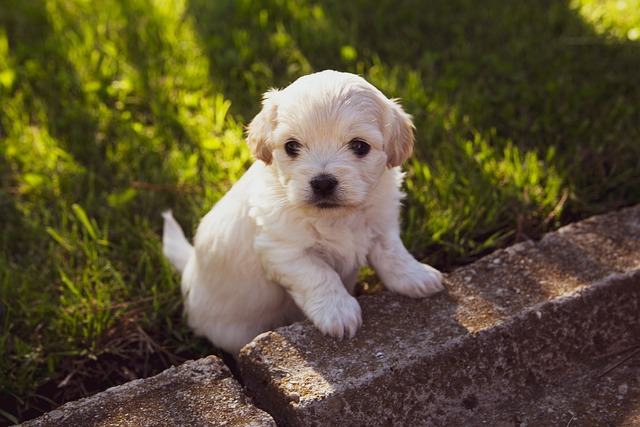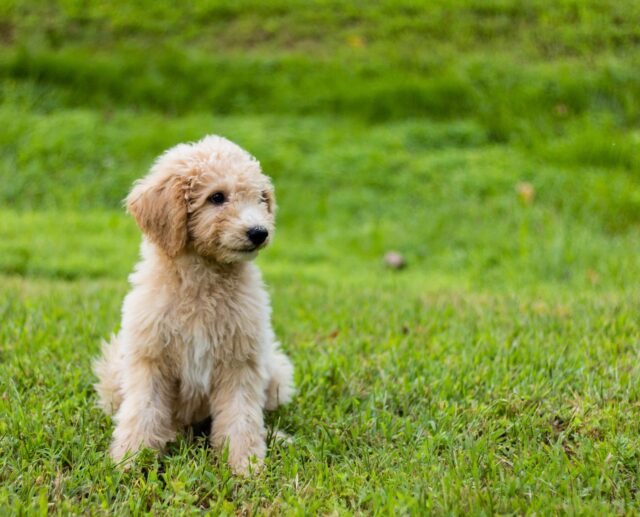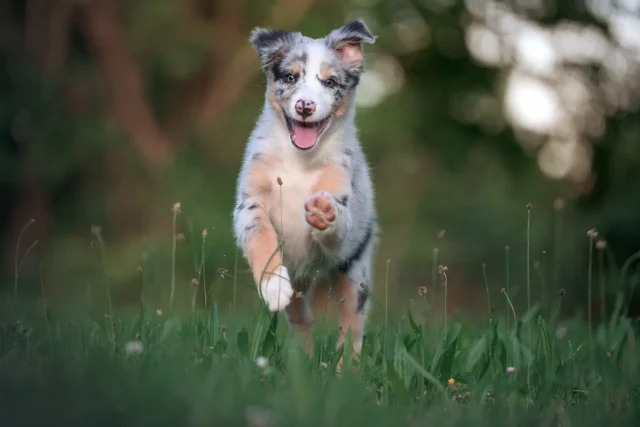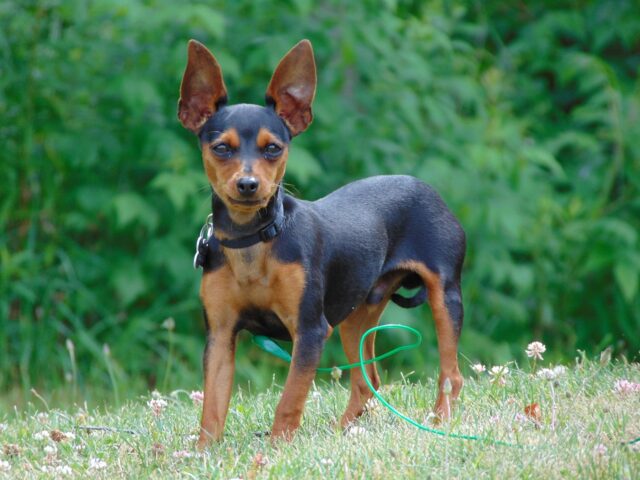Finding an honest and responsible breeder is important to finding a healthy best friend. After researching what breed is right for you, finding a reputable breeder is sometimes more important than choosing the right breed. A responsible breeder will encourage multiple visits and guide your puppy’s care and training.
The Humane Society of the United States says responsible breeders’ dogs appear lively, clean, and healthy and don’t shy away from visitors.
“A responsible breeder will have a strong relationship with one or more local veterinarians and can show you individual records of veterinary visits for your puppy and her parents.”
The HSUS goes on to explain that responsible breeders can explain in detail the potential genetic and developmental problems inherent to the breed and provide documentation that the puppy’s parents and grandparents have been adequately evaluated.
Buying from a poor source contributes to the continuing overpopulation of companion pets and even to continuing the cycle of animal neglect and cruelty. In this blog, we’ll give some tips on how to find a responsible breeder so that you can try to avoid unethical sources altogether. Here’s the takeaway:
How To Find a Responsible Dog Breeder?
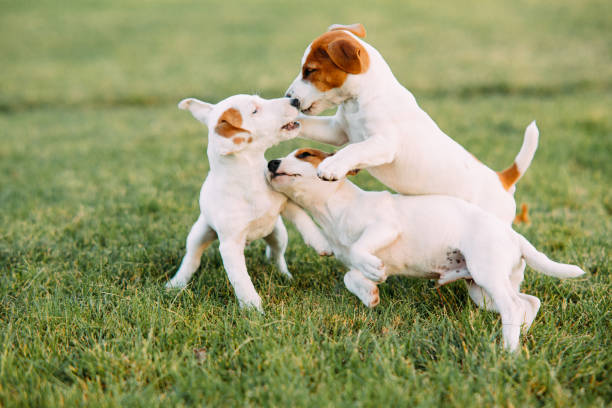
Just because a breeder has a website or is advertised in a magazine doesn’t mean they’re reputable. You can find lists of breeders through the AKC or UKC, but these breeders are not screened. It’s critical to keep in mind that these are just lists and not an endorsement.
You can find responsible dog breeders by talking to several breeders before choosing a breeder. You can also work with pet counselors to help you search for a healthy puppy.
Avoid Mishaps
The Humane Society of the United States recommends choosing to walk away. Remember that your dog may live for 10 to 20 years, making it worthwhile to dedicate time now to ensure that you engage with a responsible breeder who raises healthy, well-cared-for, and socialized puppies and dogs and maintains clean and ethical living conditions for them. Here’s what else the HSUS says about reputable breeders:
- Responsible breeders often belong to local, national, and state clubs specializing in their breed.
- Many will compete for their dogs in agility, conformation events, tracking, and agility trails.
- Responsible breeders will provide you with a health guarantee for your puppy in a written contract and give you plenty of time to read it.
- Reputable breeders will also not require that you use a specific veterinarian.
- Responsible breeders will meet the psychological and physical needs of puppies and adult dogs by providing toys, regular socialization, exercise, and enrichment that benefit a specific breed.
- Every responsible breeder wants the best home for their puppies, cares about why you want a dog and is responsible for the pup’s daily care, training, vet care, feed, etc.
- Responsible breeders will always ask your landlord for proof of whether it’s okay to have a puppy or dog.
- You will also be asked to spay and neuter and asked to sign a contract stating that you will unless you plan on showing your pup.
- Most importantly, the contract will state that you will return the puppy to the breeder if you cannot keep him or her.
Look For Breeder Certifications
When purchasing a new puppy from a breeder, you should get the following from the breeder to ensure that they meet specific standards and certifications:
- Health Clearances: Ask for health records for the puppy’s parents to ensure they have been screened for common health issues related to their breed. This can include tests for hip dysplasia, eye conditions, and other genetic concerns.
- Registration Papers: Obtain registration papers from a reputable kennel club, such as the American Kennel Club (AKC) or the United Kennel Club (UKC). This ensures the puppy is purebred and provides information about its lineage.
- Breeder Certifications: Inquire about specific breeder certifications or memberships in professional breeding organizations, such as the Canine Health Information Center (CHIC) or the National Breed Club. These affiliations demonstrate a commitment to responsible breeding practices.
- Contract and Guarantee: Request a written agreement outlining the terms of sale, health guarantee, and return policy. A responsible breeder should offer a health guarantee and be willing to return the puppy if any issues arise.
- References and Reviews: Ask for references from previous puppy buyers and seek out online reviews or testimonials about the breeder’s reputation and the quality of their puppies.
The CHIC Certification Program
The OFA established The Canine Health Information Center (CHIC) with participating parent clubs to investigate and curate data on prevalent health issues in specific dog breeds.
CHIC has developed a prescribed protocol for conducting breed-specific health screenings. Dogs that undergo testing following this protocol receive recognition through a CHIC number and certification.
“A dog achieves CHIC Certification if it has been screened for every disease recommended by the parent club for that breed and those results are publicly available in the database,” explains CHIC.
What Are The Red Flags in a Breeder?
Several red flags can indicate a breeder may not be reputable or may not prioritize the well-being of their dogs. Here are some common red flags to be aware of:
- Lack of Communication: If the breeder is unwilling to communicate via phone, text, or video, it could raise concerns about their legitimacy.
- Parent Dog Treatment: If the breeder does not appear to treat the parent dog as a member of their own family, it could be a red flag regarding their care practices.
- Inability to Meet Puppies in Person: While protecting puppies from illnesses is essential, failure to meet them before pickup should be considered a potential red flag.
- Cutesy Backgrounds/Costumes in Puppy Pictures: Excessive use of cutesy backgrounds or costumes in puppy pictures may indicate the breeder prioritizes aesthetics over the well-being of the puppies.
- Lack of Breed Knowledge: A breeder’s lack of knowledge about the breed they are working with could signal a warning sign.
- Excessive Evasiveness: This could be a significant red flag if the breeder is evasive or avoids answering questions.
- Advertising on Platforms Like Craigslist/Social Media: Advertising on platforms like Craigslist or social media and being an “average Joe” can indicate backyard breeding practices.
- Lacks Commitment or Exploitative Practices: Breeding operations that lack commitment to the animals’ well-being or engage in exploitative practices should be cautiously approached.
- Refusal to Provide Information: Breeders who refuse to provide necessary information or are unwilling to answer questions may raise concerns about their transparency and integrity.
Get Referrals
You should always try to get referrals and glean as much information as possible about a breeder. Referrals from friends, family, or acquaintances who have previously acquired a puppy from a breeder can provide firsthand insights into their experience. This trust and authenticity are precious when navigating the process of finding a responsible breeder.
Visit Puppy’s Home
The Humane Society advises that potential pet parents visit the home where the pups were born and raised. They also advise you to find the right dog breeder and thank yourself for the rest of your dog’s life.
Ask Questions
You should ask your breeder several questions, such as when the puppies were helped, how old they must be before leaving the kennels, and whether there is a waitlist.
One of the most critical questions is whether there’s been any sign of genetic diseases in previous litters and what types of diseases occur in the breed. A breeder’s lack of knowledge about the breed they are working with could signal a warning sign.
Ensure there’s a return policy if you cannot keep your puppy. And find out how the breeder matches puppies with prospective owners based on temperament and lifestyle needs. Also, does the breeder offer ongoing support and guidance after you’ve taken the puppy home, such as resources for training and healthcare?
FAQ’s Finding and Working With a Reputable Breeder
Q: What questions should I ask a breeder?
- Can you provide documentation of the puppy’s health history and that of its parents?
- Have the parents undergone health screenings relevant to their breed?
- Are there any known genetic health issues within the bloodline, and how are they addressed?
Plenty of other questions should also be asked about how often the breeder has litters, how pups are socialized and cared for, what they eat, and how frequently you can visit the facility to see sire, dam, and pups.
Q: How do you know if a breeder is reputable?
A: A good breeder will be open and honest about any genetic problems in the breed. Although every breed will have genetic health problems, if you see that your breeder is reluctant to discuss any health issues, that may be a red flag.
If your breeder insists that there are no genetic health issues, be careful. The breeder should also give you proof that all hip, eye, and ear tests have been done to rule out problems and supply you with your pup’s first vaccine and worming records.
Q: What are red flags in dog breeders?
A: Be careful of breeders that don’t allow you to return your puppy to the breeder. All reputable breeders insist that puppies and older dogs be returned to their kennel if the new owners cannot keep them.
You should also ask your breeder if they would replace a puppy with severe health problems and ensure this is included in the sales contract.
How to Find a Responsible Dog Breeder
Video credit: Gone to the Snow Dogs

